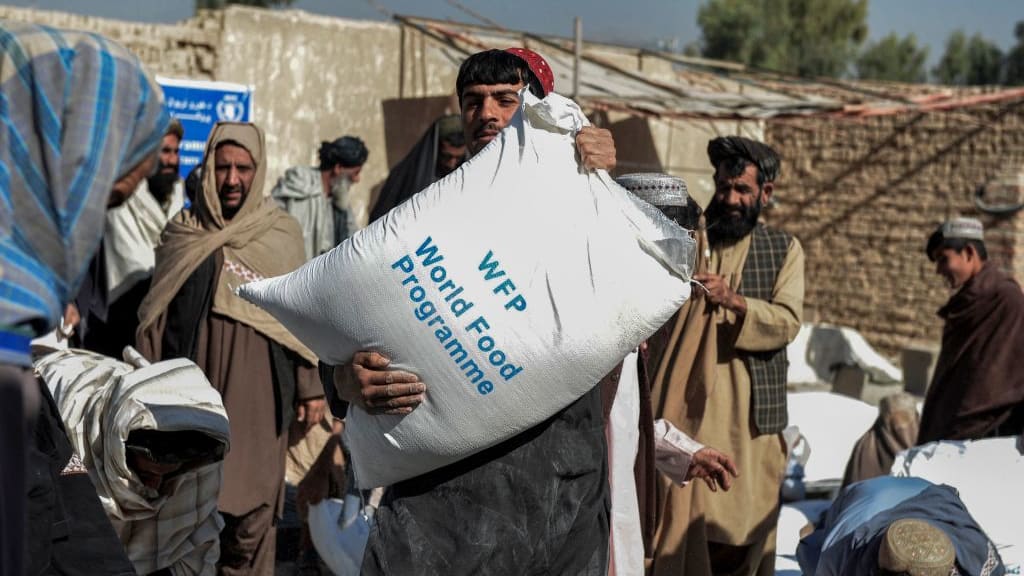Millions in Afghanistan are facing extreme hunger


A free daily email with the biggest news stories of the day – and the best features from TheWeek.com
You are now subscribed
Your newsletter sign-up was successful
It's been a dire winter in Afghanistan, with 23 million people facing extreme levels of hunger amid the brutal cold.
Shelley Thakral, spokeswoman for the World Food Program in Afghanistan, told NPR that there are several reasons why so many Afghans don't have enough food to eat. The country is experiencing its worst drought in decades, food prices have gone up, and the Taliban government takeover last August triggered an economic crisis. Many people who are now out of work because of the new government, including teachers and construction workers, are experiencing food insecurity for the first time. "There's a new urban class of hungry people," Thakral said.
In order to keep Afghans fed through 2022, the World Food Program needs $2.6 billion, which will be used to provide staples like flour and oil. Some people are going without vegetables, dairy, and meat, and malnutrition is on the rise. "When you're not having green vegetables, and if you're pregnant or if you've got a newborn, or if you're a child under 5, that will start to have an impact," Thakral said.
The Week
Escape your echo chamber. Get the facts behind the news, plus analysis from multiple perspectives.

Sign up for The Week's Free Newsletters
From our morning news briefing to a weekly Good News Newsletter, get the best of The Week delivered directly to your inbox.
From our morning news briefing to a weekly Good News Newsletter, get the best of The Week delivered directly to your inbox.
There are vendors selling fruit and vegetables in the streets of Kabul, "but what you're hearing is that people just don't have money to buy food," Thakral said. To scrape together funds to eat and purchase fuel and firewood to stay warm, many are selling household items — and in extreme cases, selling their children into early marriages, Thakral told NPR. Afghanistan is a "poor country, and it has been, but people have always managed to survive," she added. "This is different. The difference now is that people feel this is a very dark time for them."
A free daily email with the biggest news stories of the day – and the best features from TheWeek.com
Catherine Garcia has worked as a senior writer at The Week since 2014. Her writing and reporting have appeared in Entertainment Weekly, The New York Times, Wirecutter, NBC News and "The Book of Jezebel," among others. She's a graduate of the University of Redlands and the Columbia University Graduate School of Journalism.
